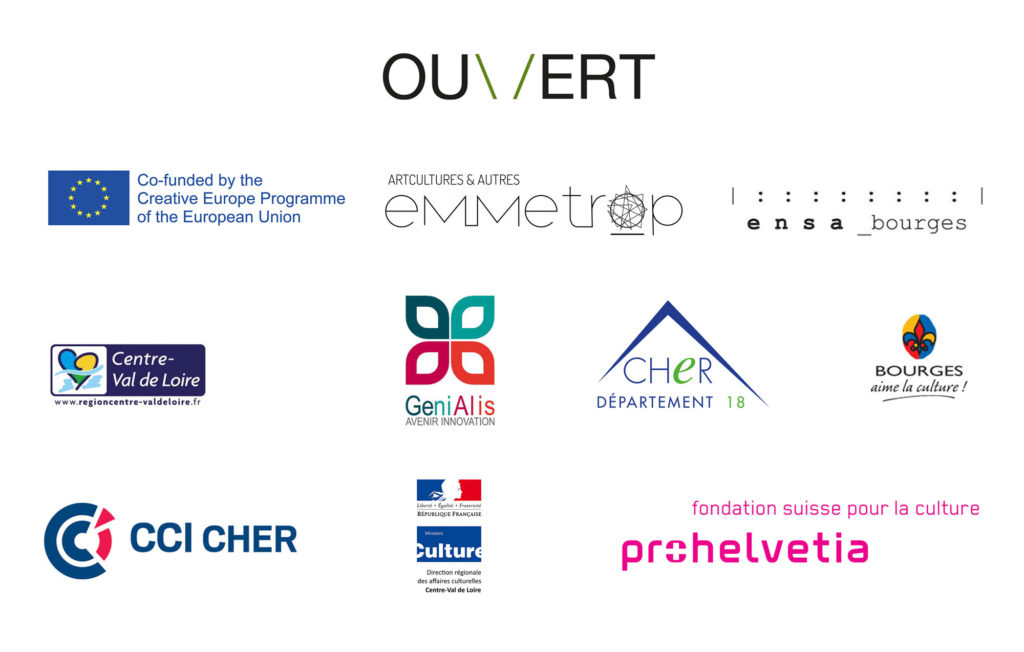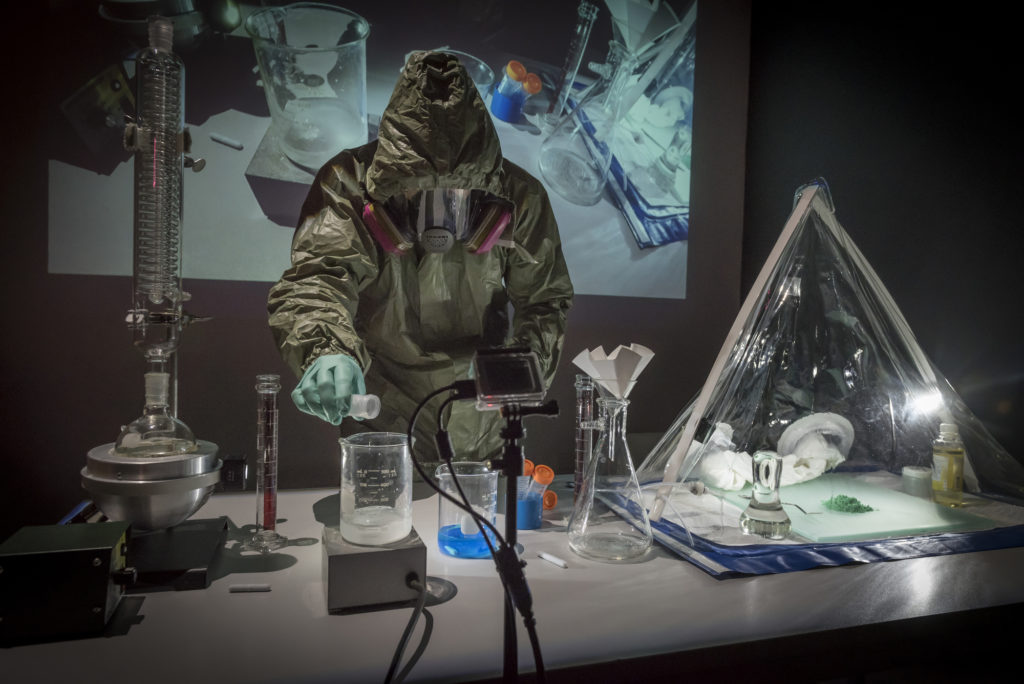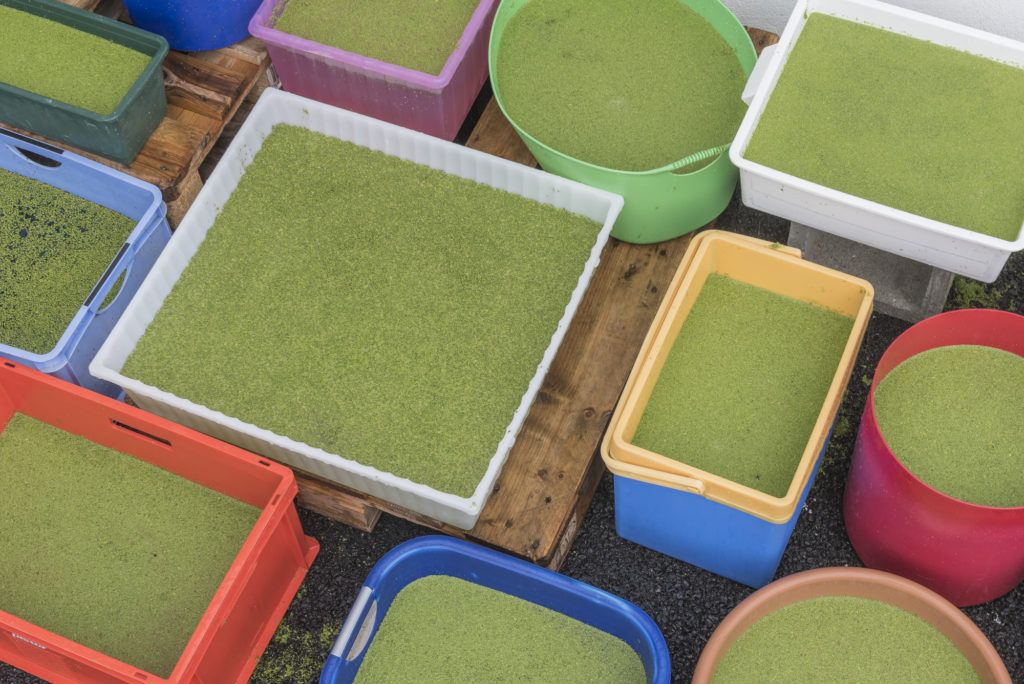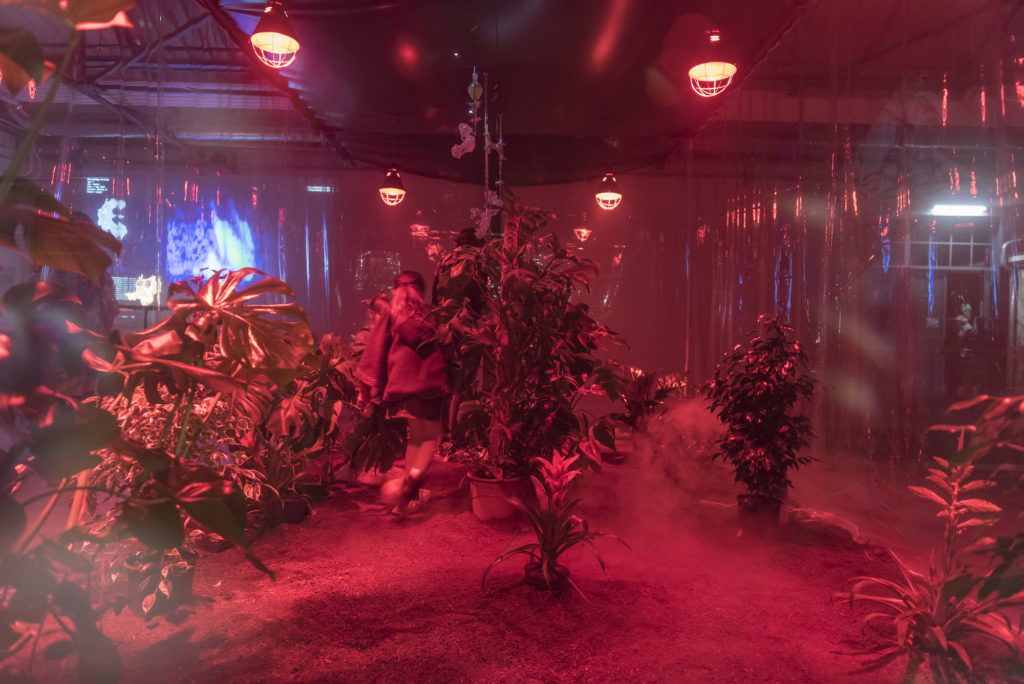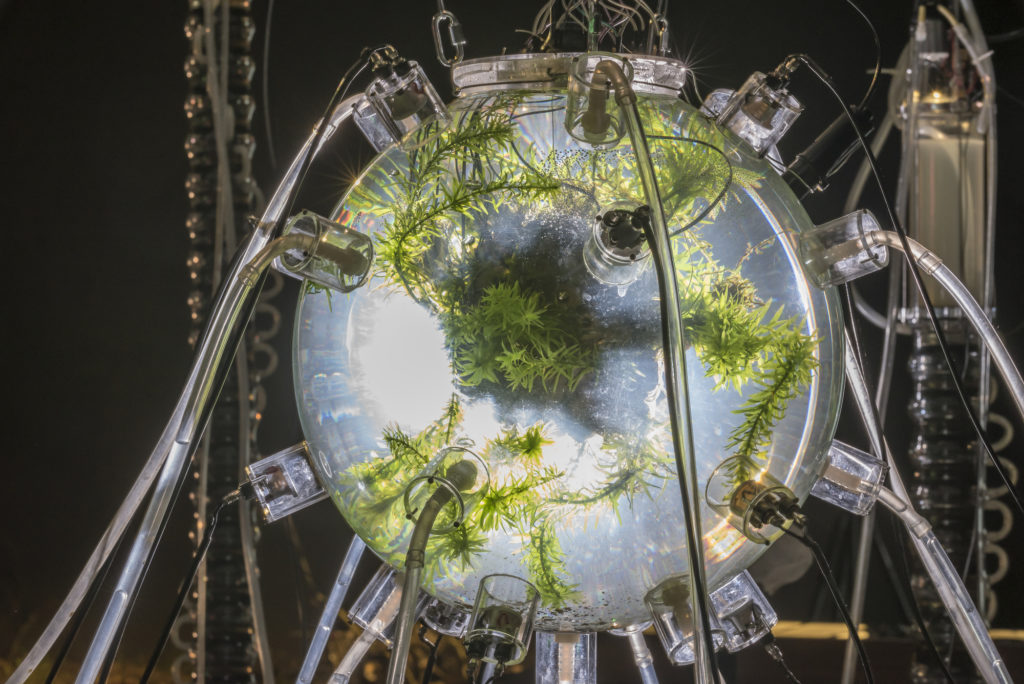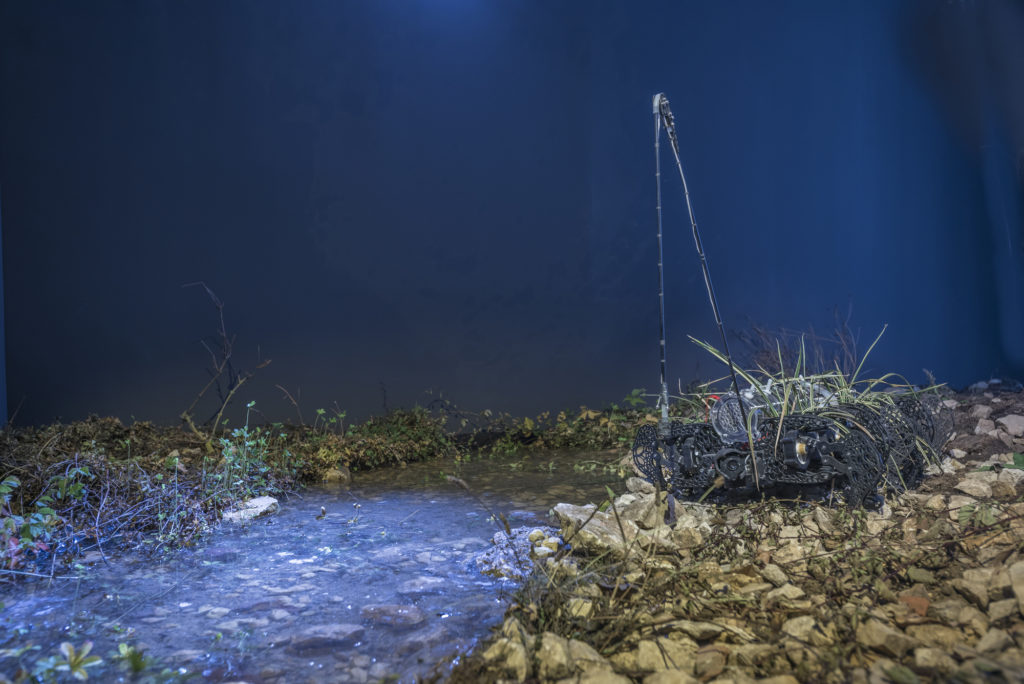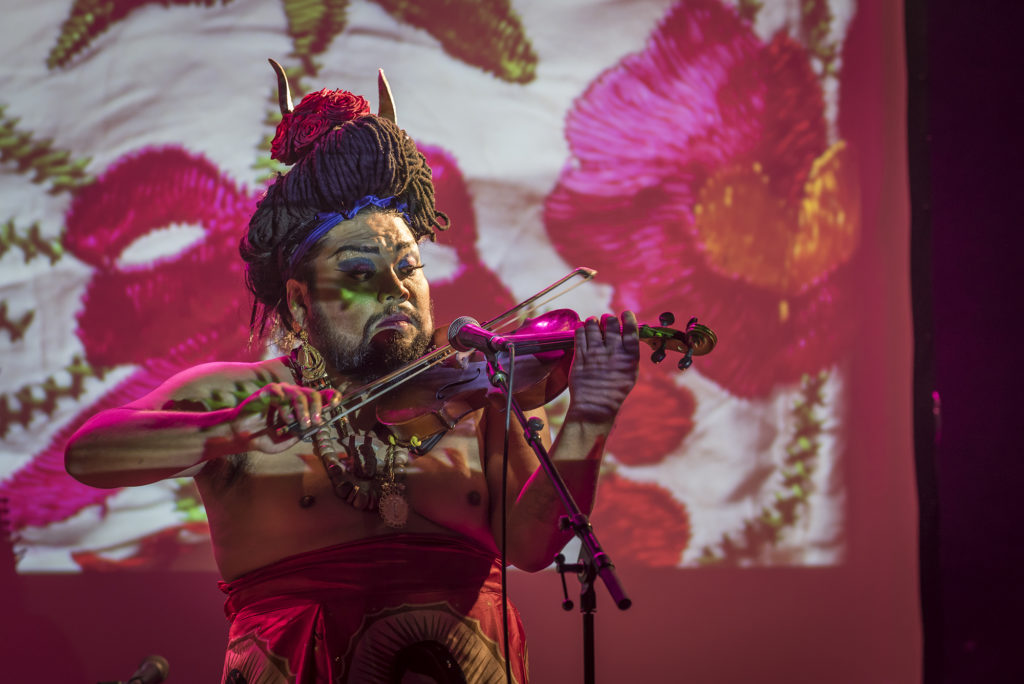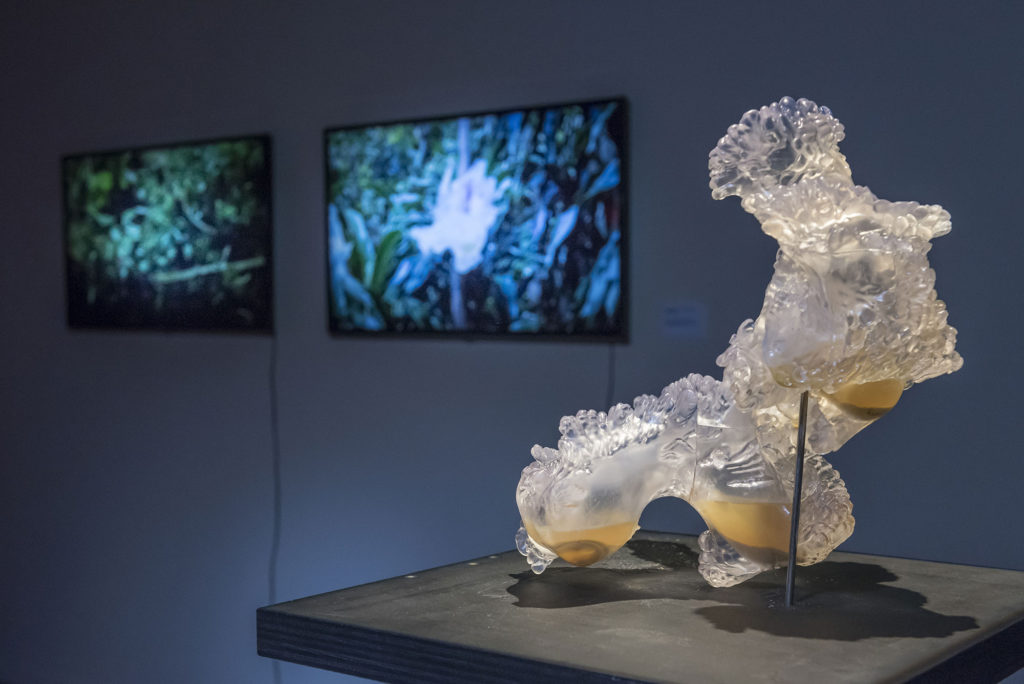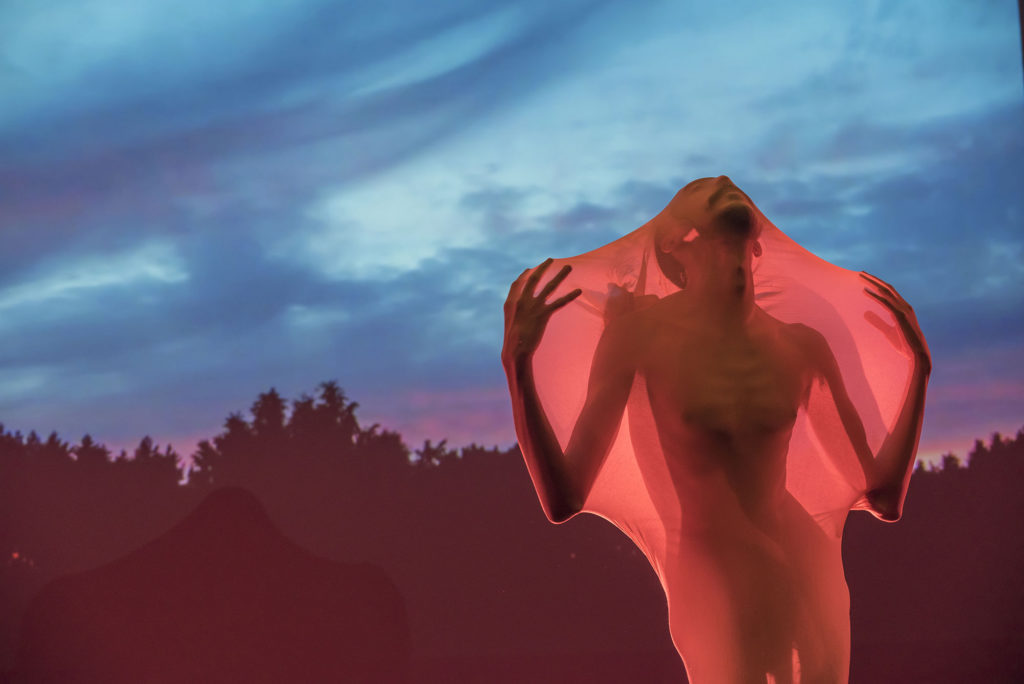EXHIBITION & PUBLIC EDUCATION PROGRAM, CONFERENCE & PUBLIC WORKSHOPS
Dates (Period): 18/10/19 – 18/01/2020
Location: Bourges, France
Organizer: Emmetrop
OU\/ERT festival organized by Emmetrop is the first event of the GREEN project, Emmetrop will be also hosting the project’s kick-off partner meeting in Bourges in 2019 with participation of representatives from all project partner organizations. The first implementation activity in the project – OU\/ERT exhibition with about 20 artworks will also take place in Bourges organized by Emmetrop.
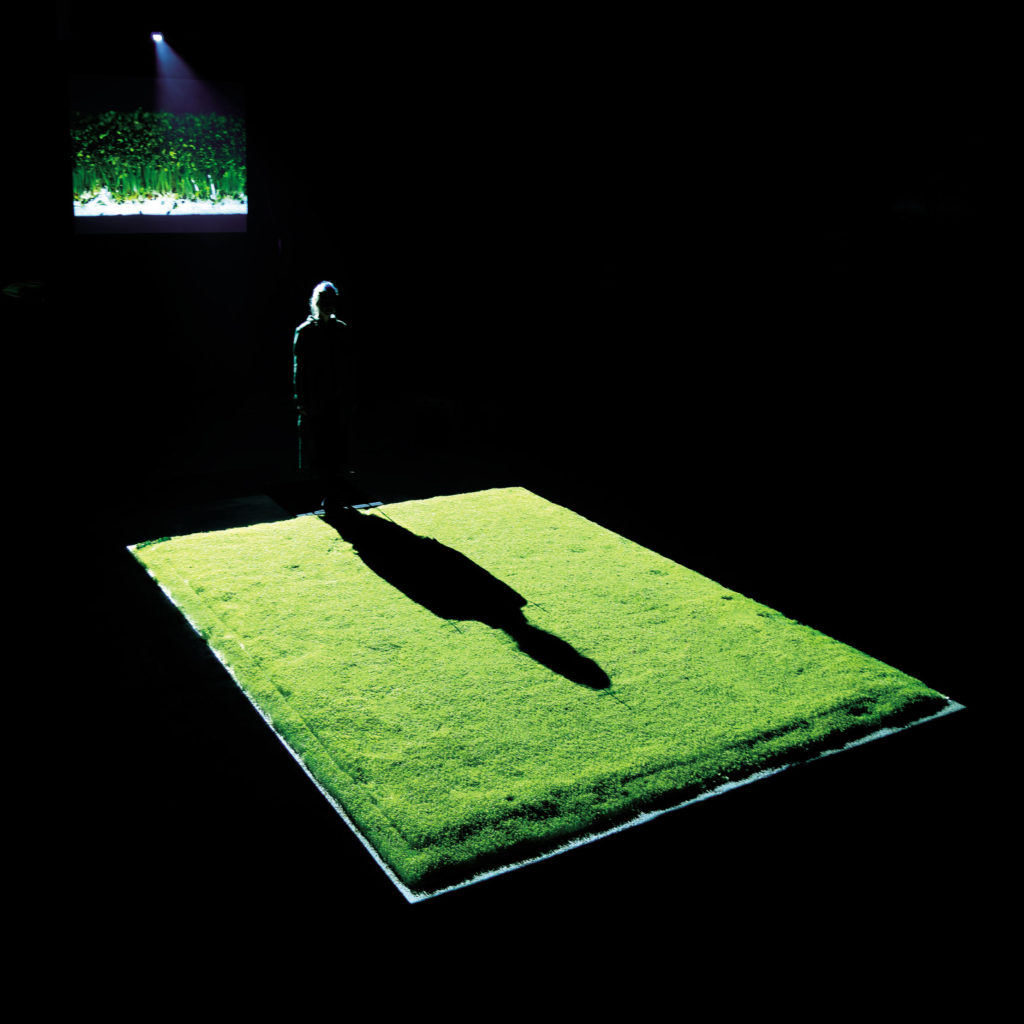
Špela Petrič (Slovenia) – Skotopoiesis, performance of human-plant communication
The OU\ /ERT project: Phytophilia – Chlorophobia – Situated Knowledges puts anthropocentric assertions to the test in the age of ubiquitous greenwashing that masks the damage that unfettered capitalism inflicts on ecological and social systems. This artistic action project opens up fields of questioning beyond the symbolic, and emphasizes the importance of a material, epistemological and political commitment of the arts at a time of environmental crisis. Thus, the invited artists physically engage in investigating possible forms of aliveness, and favour an approach to bodies as multidimensional symbiotic entities, transversal and trans-species ecologies, while deconstructing ontologies based solely on human individuality.
OU\ /ERT thus questions the tendency of modern human civilizations to want to “green everything” as hypercompensation. Based on a misinterpretation of vegetation, the human takes ‘green’ to be a symbolic analogy of ‘natural’, whereas the perception of the electromagnetic spectrum corresponding to ‘green’ reveals above all an anthropocentrism: the human eye distinguishes preferentially and with the greatest acuity the colour green, because of biological evolution, whereas this wavelength is useless to the photosynthesis process of plants whose chlorophyll absorbs blue and red light by photosynthesis, but reflects the emission spectrum corresponding dominantly to green as ‘residue’. As humans are inclined to take this spectral surplus for the very essence of the plant, this misunderstanding also leads them to reduce the plant to its photosynthetic function, or to its capacity to sequester carbon dioxide. This paradox leads us to a mistrust of green metaphors, while insisting on the importance of situated knowledge about chlorophyllous organisms, which are the vast majority on our planet and essential for all other forms of life. Three main axes run through this project of exhibitions, performances and artistic and scientific education :
• a tendency of “plantamorphisation” in art and philosophy, which not only includes a reflection on the notions of centrality and individuality, but which is articulated through artistic attitudes in which the plant is both a figure of thought and a collaborating agent;
• the deconstruction of the symbolic and superficial use of ‘green’ as a masquerade, supposedly synonymous with ecological and vegetal;
• the integration of recent research on the sensory modalities of plants and traditional knowledge on pharmacopoeia, using non-anthropocentric speculations in order to transform our sensorium, and to increase our perception of the environment and the current climate conditions.
An important place is being given to the question of agency of other nonhuman organisms and experimental systems, to their very micro-performativity, rather than focusing on the human techne, while highlighting contemporary philosophical thought that advocates the continuum between species and their microscopic interconnections. Hybrid art forms, inspired by Science and Technology Studies (STS), are explored that promise to open up perspectives for reconsidering non-human otherness, potentials and agency through plants, animals and micro-organisms. Emphasis is also placed on what plant company means for witches, alchemists and shamans who have developed, in different cultures and contexts, techniques to overcome the visible and access other realities. This goes hand in hand with the very concept of situated knowledge, as put forward by Donna Haraway: “We seek … not partiality for its own sake but, rather, for the sake of the connections and unexpected openings situated knowledges make possible. The only way to find a larger vision is to be somewhere in particular.”
By Jens Hauser and Aniara Rodado, curators of the exhibition
Photo © Axel Heise – OU\ /ERT : Phytophilie – Chlorophobie – Savoirs Situés, Emmetrop-Transpalette Bourges, 2019.
EXHIBITION from October 18, 2019 to January 18, 2020
Communicating with plants, updating their relationship with and knowledge of witchcraft, inventing ecotechnical systems where humans become superfluous, dancing with phytoplankton, planting herbicide-resistant gardens or planting virtual trees to offset the CO2 footprint of our digital life, performing the sick body with organ or molecular transplants, or synthesizing hyper-toxic green pigments, far from the images of the idealized pastoral nature… The OU\ /ERT artists open up debates around the pervasive greenness trope, get physically involved and bring plants and other symbiotic creatures into the limelight. Trans-species alliances that challenge anthropocentric claims in the age of ubiquitous greenwashing. Distrustful of green and superficial metaphors, they insist on the importance of situated knowledges related to our chlorophyllous fellow organisms, essential for all other forms of life.
Photo © Axel Heise – OU\ /ERT : Phytophilie – Chlorophobie – Savoirs Situés, Emmetrop-Transpalette Bourges, 2019.
Colloquium OU\ /ERT : Phytophilia – Chlorophobia – Situated Knowledges November 14, 15 and 16 – ENSA and Antre Peaux / Bourges This international and interdisciplinary meeting brings together botanists, biologists, philosophers and artists to question the plant as both a figure of thought and a collaborating agent, and emphasizes the importance of material, epistemological and political commitment in the arts at a time of environmental crisis. The conference will deconstruct the superficial use of ‘green’ as a masquerade, supposedly synonymous with ecology and plant life, while highlighting the sensory modalities of plants and traditional knowledge about pharmacopoeia, in order to increase our perception of the environment and the current climate conditions. The conference will be accompanied by a selection of films proposed by Brigitte Luis Guillermo Baptiste (Colombia), biodiversity specialist, queer activist, and director of the Alexander von Humboldt Biological Resources Research Institute.
GUESTS Monika Bakke, philosopher (Poland) Brigitte Luis Guillermo Baptiste, biologist (Colombia) Jean-Marc Chomaz, physician (France) Karel Doing, artist (Netherlands) Claire Gauzente, economist (France) Jens Hauser, art theoretician (Germany) Karen Houle, philosopher (Canada) Eva Maria Lopez, artist (Germany) Catherine Mosbach, landscape architect (France) Luiza Prado De O. Martins, artist (Brazil) Aniara Rodado, artist-choreographer (Colombia) Tina Tarpgaard, choreographer (Denmark)
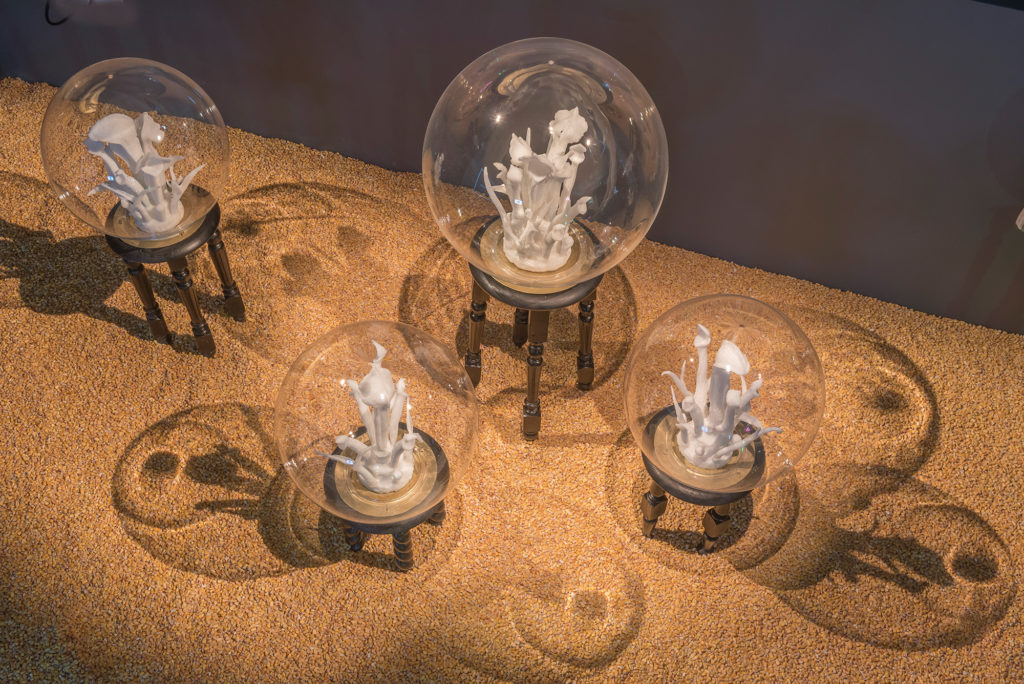
Palmatomania
Karine Bonneval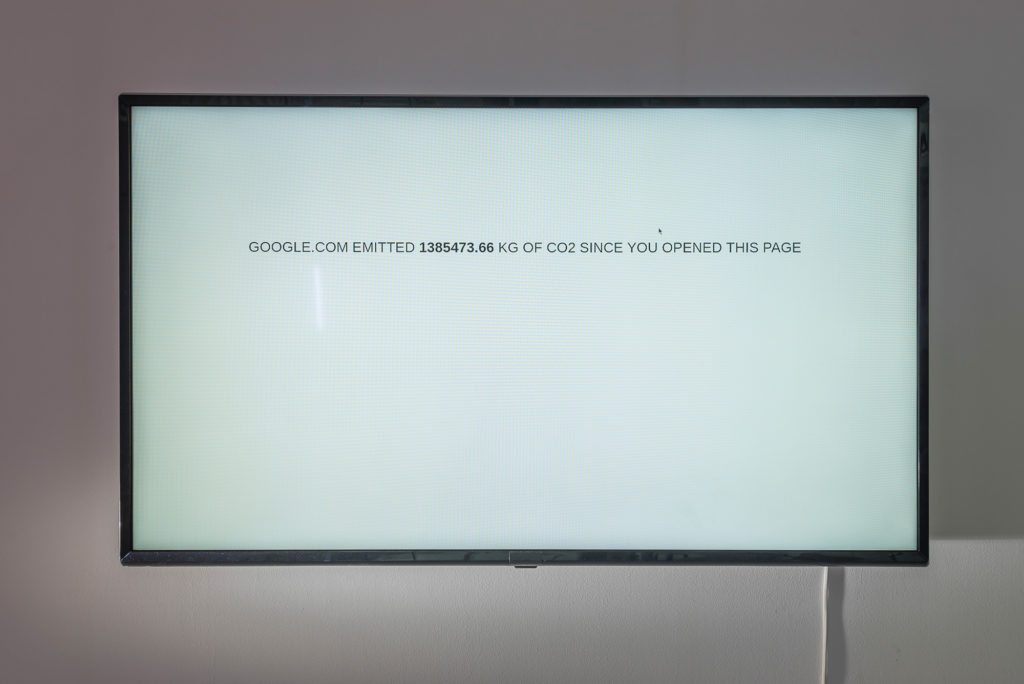
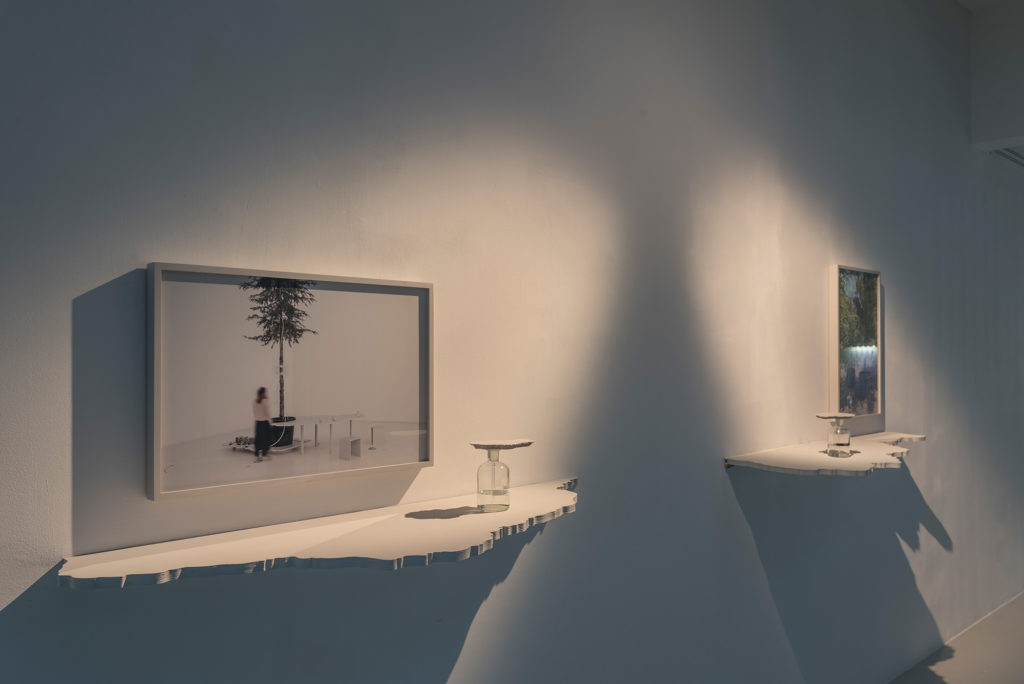
One Tree ID
Agnes Meyer-Brandis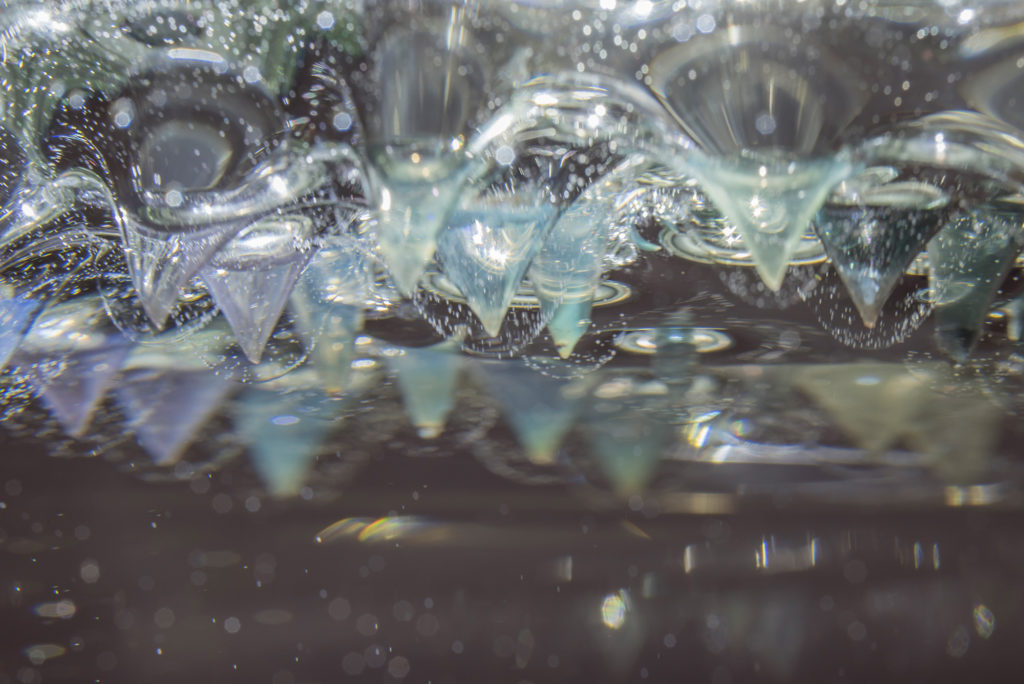
A Thousand shades of green
Jean Marc Chomaz, with Giancarlo Rizza & Vincenzo Giannini
Photo © Axel Heise – OU\ /ERT : Phytophilie – Chlorophobie – Savoirs Situés, Emmetrop-Transpalette Bourges, 2019.
